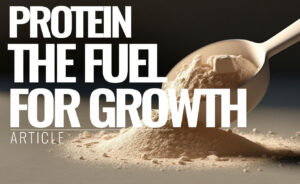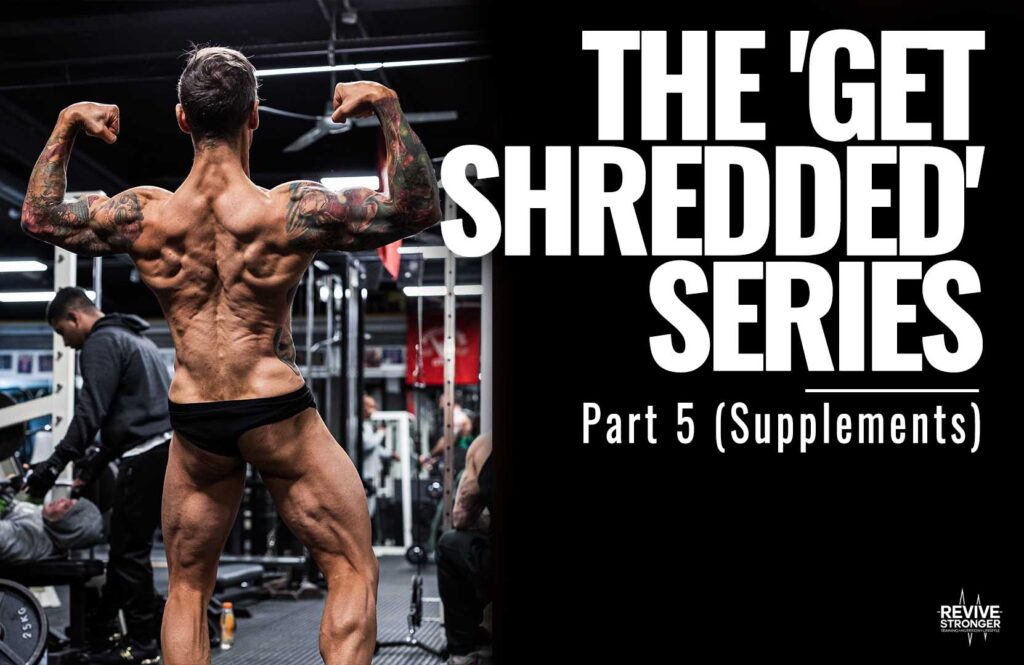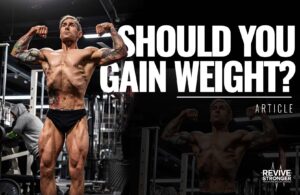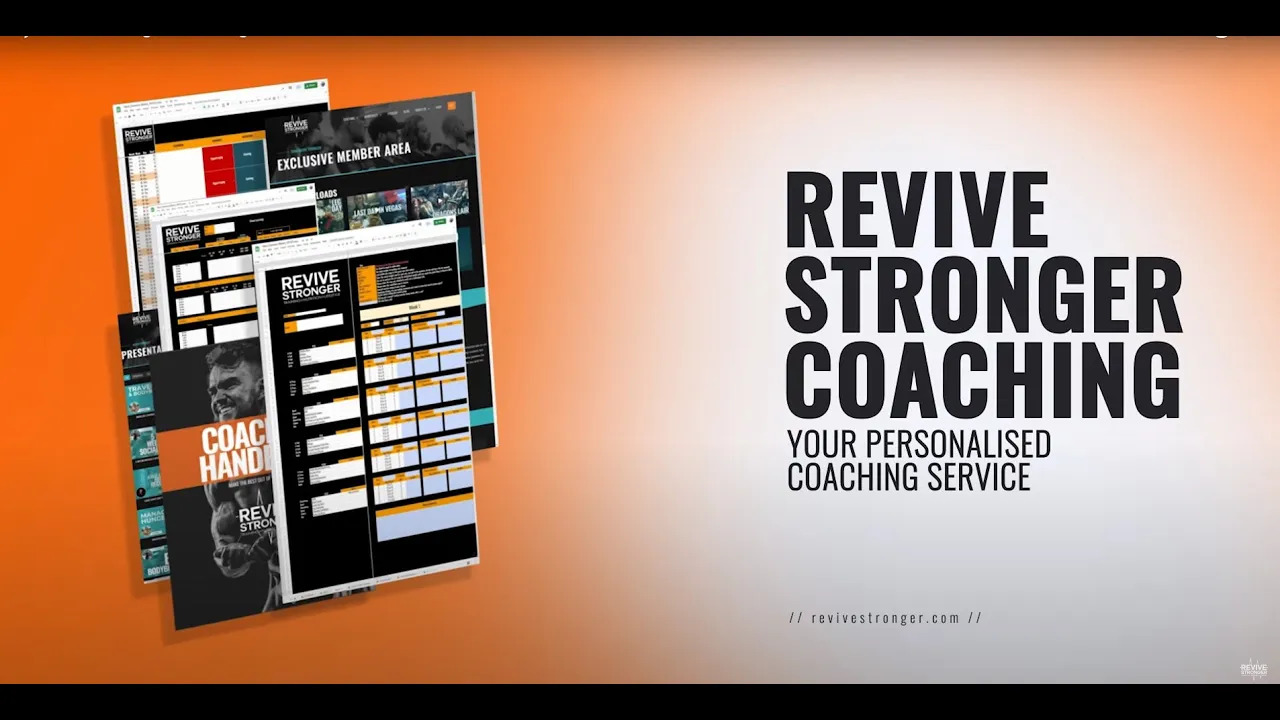
Revive Stronger
The ‘Get Shredded’ Series – Part 5 (Supplements)

You know what’s going to make the smallest difference to your fat loss results?
Supplements.
They are as they sound; supplemental.
No supplement that is legal and easily accessible can replace the need for a solid diet and training plan.
I don’t care what the advert tells you or what the most shredded dude in your gym swears by.
[bctt tweet=”Supplements can’t outwork diet & training”]
Supplements are like the sprinkles on a cake. You can’t expect a cake to taste good if you didn’t make a solid sponge, it doesn’t matter how many hundreds and thousands you chuck on it, if that sponge tastes like crap the end result will too. In the same way, if you get your training & nutrition messed up, it doesn’t matter how many fancy supplements you take, the end result will be the same, crap.
[bctt tweet=”You’ll burn more fat walking to the store, than a fat loss supplement will burn.”]
One of the main reasons I am doing this article is because I knew people would want to know what supplements would be recommended for losing fat. So by doing this I want to get across the point that supplements come last in your priorities, if at all. You can get shredded with no supplements, however, there are some I recommend, and these can certainly help you drop fat when combined with a productive nutrition and training plan.
I personally used all of these throughout my natural bodybuilding contest prep and recommend them to my clients, often they and I take them year round to help supplement our goals.
Table of Contents
Supplements
Sorting the Truth from the Hype
As consumers we need to become more skeptical of product claims and more demanding for ‘good’ evidence, forcing supplement companies to conduct more research to ‘prove’ their products to us. In recent years there has been a large growth in scientific studies, and as consumers we are confronted with a barrage of information. It isn’t uncommon to see journals cited throughout supplement companies sites. The trouble is these studies are not accessible to everyone, they contain a tonne of jargon and many of us don’t have the time to read through them.
This is difficult, because I think it is good that supplement companies are having to quote science to provide evidence for their products. However, it is bad because they often use studies that have no validity to us, but as consumers we see science and assume they’re telling the truth. This predatory marketing is not uncommon and the supplement industry is not well-regulated in the slightest.
Common Problems:
- Using single studies and not the full body of evidence to make claims.
- The test subjects are not similar to consumers e.g. animals, untrained etc.
- Poor testing accuracy e.g. changes in muscle girth taken by tape-measure instead of MRI.
- The placebo effect isn’t tested for; as some supplements ‘work’ not because of a physiological change but because of a perceived psychological benefit.
- The study wasn’t double-blind; the researchers and subjects knew who was taking the supplement and placebo.
- Diet, exercise and daily physical activities not being controlled.
- A very small number of test subjects, but making generalised claims for the entire population.
- They only tell you part of the story e.g. protein is important for muscle growth, but don’t mention total calorie intake or resistance training.
- The claim isn’t measurable, they give purposefully vague and un-testable claims like ‘makes you feel more alert’.
As you can see, without going into PubMed and delving through the research you cannot make sure that the claims supplement companies are making are true. They prey upon this vulnerability, using complex terminology, skewed graphs and impressive claims to get us to part with our cash.
[bctt tweet=”Supplement companies can legally lie to you, it’s called ‘freedom of speech'”]
So long as they do not claim drug like effects the law is not violated. Remember just because something is written down does not mean it is true, something written as fact could easily be fiction. This makes our lives very hard, because how do we know what’s right and what’s wrong?
Tips on how to diagnose a supplements worth:
- Be suspicious of anything that sounds too good to be true.
- Be wary of companies that claim a supplement can out-do diet and or exercise.
- Be critical of ads that talk about amazing results in a short period of time.
- Be skeptical of products that have only testimonials and do not provide any scientific evidence.
- Dismiss claims that a natural supplement can be as effective as an anabolic steroid.
- Avoid proprietary (secret) blends where they don’t tell you the amounts in the product.
If you use that 6 step process each time you view a supplement you will be much more likely to make an informed choice. Citadel Nutrition who wrote the supplement chapter in Get Big, Stay Lean talked about this thoroughly and also give some great tips on how to understand dietary supplement labels (you can get this chapter free here).
Finally I want you to find reputable sources of supplement information, because some people claim to be experts and some people are experts. Me? I am not a supplement expert by any means, but I use the above along with seeking out reputable sources of knowledge. Who do I turn to?
People I consider experts:
- Alan Aragon
- Lyle McDonald
- Examine.com
- Eric Helms
I keep it simple, I stick to four main sources for my supplementary information. With that I am going to take you through some of the supplements that will help you get shredded, they pass the test, and are worth looking into.
Caffeine
“Caffeine is a stimulatory anti-sleep compound extracted from coffee beans” – Examine.com
Most of us have some form of caffeine daily, whether it be tea, coffee, chocolate or a Red Bull, it is the worlds most popular drug. It has been heavily researched and is deemed safe, but like anything else this is assuming moderation. It is one of the most common ingredients you will find in fat loss supplements.
Why is it so popular? Apart from the fact these beverages taste fantastic, caffeine itself has some pretty potent impacts on our bodies. Even the idea of having caffeine can improve our mood, likely a placebo, but you can see how powerful it is. I know when I smell coffee brewing I feel a little bit more alert, just me? OK.
The thing is, when you’re dieting, eating less, it does impact your mood. You see others enjoying all sorts of sweet treats, that you know you’d be better off avoiding, caffeine when consumed in tea, coffee or a sugar-free energy drinks is almost zero calories (ensuring your not adding milk and sugar). So you get to enjoy something tasty that has almost no impact on your days nutrition. In the final stages of my natural bodybuilding stages I was consuming up to 3 coffees a day, and I know many of my clients even exceeded that.
However, something more potent is the fact caffeine increases our metabolic rate and therefore can aid in our shred quest. The all important question is how much? And the fact is, sadly very little, and that’s why I said no supplement can outwork a good training or nutrition plan. One study found that 6 strong cups of coffee led to an additional 100 calorie expenditure, not only is that a lot of coffee, but it is also not very many calories. But the slight increase in metabolic rate is nice and caffeine has been shown to increase fat usage by the body.
Something I think is more important is the fact caffeine provides a ergogenic aid, meaning it can improve our performance in the gym. It can increase our power output, meaning we can shift more weight, and it has been found to improve our endurance by decreasing fatigue. This becomes very handy when on low calories, because we are by default more fatigued, so if we can help decrease this our performance is more likely to hang about. If we can perform better in the gym the benefits are twofold; we’re more likely to keep our muscle and we will burn more calories. Two very important aspects when it comes to getting shredded.
There are very few downsides to caffeine, the main one for me being you can become tolerant to it. With chronic use we begin to lose some of the benefits caffeine provides, so use it, but don’t abuse it. The term moderation comes to mind; use it but only when you really need it.
- 5–6 mg/kg caffeine taken prior to exercise is effective in improving exercise performance; however, caffeine use may need to be cycled in order for us to obtain the maximum ergogenic effect. Taking 4 to 5 days off may be enough to reduce tolerance.
Intra-Workout Carbohydrates
Now what I am talking about here is more anecdotal than anything, but for me and my clients it works. Basically you take some form of carbohydrate in while you are training, I personally liked skittles. When you are in a long-term calorie deficit, that is relatively low in carbohydrates your muscular glycogen stores will be lower. This means your body has less energy to pull from, and taking in some carbohydrates during your workout can keep these stores topped up, which should in turn aid performance.
In Alan Aragon and Brad Schoenfeld’s recent study on workout nutrition they found that high-intensity resistance training with moderate volume (6-9 sets per muscle group) has only been shown to reduce glycogen stores by 36-39%. However, these are non-dieting folk, and if you are performing a relatively high volume workout while taking in little carbs you may deplete your stores by much more. Therefore you could argue there may be a case for carbohydrate consumption.

So for me I found that if I was finding a workout tough I could munch on a few skittles and feel a little energy kick and renewed focus. Whether or not it was physiological or psychological is out of the question, whatever it was, it made doing another set of squats more bearable. Me and my athletes are not the only ones to have experienced this, Alberto Nunez of 3DMJ talks about using sweets when his energy levels were dipping in his natural bodybuilding contest prep.
Don’t want to eat during your workout? That’s cool, I would therefore suggest you might find a benefit from sandwiching your workouts with carbohydrates. However, so long as you hit your total dietary needs for the day evidence suggests you’ll see pretty much identical results.
Creatine Monohydrate
Creatine is one of the most heavily researched sports supplements and has been consistently proven to be one of the most effective. Over 200 research studies have examined its safety and effectiveness for both short and/or long-term use in the trained and untrained populations.
Creatine phosphate is used for short-term energy in our bodies and by supplementing with creatine we top these stores up. The main benefit of creatine is the improved ability to maintain high-intensity effort. This in turn can lead to:
- Increased Strength
- Higher Training Volumes
With the above we see improved exercise quality and quantity, leading to greater training adaptions and in our case that’s muscle growth. As we learnt last time we should train for muscle growth, this is the best way to maintain our lean mass. Creatine obviously therefore can improve our training performance and therefore aid our chances in getting shredded.
What about the dreaded water retention?
Many people seem to be under the impression that taking creatine causes a load of water retention. However, I took creatine throughout my contest prep, as have all of my physique competitors. None of us experienced any problems with water retention, and well have a look at the pictures, do we look like we’re holding water? There have been many longer term studies conducted to assess changes in body composition with creatine supplementation and they saw gains in total body mass and fat-free mass with no change in total body water expressed as a percentage of total body-weight. So there is no need to not take creatine or stop taking creatine because of water retention.
How much?
- 3 to 5g daily (about a heaped teaspoon) taken anytime you like.
Multi-Vitamin
Vitamins are very important when it comes to our health (learn more), however in my opinion they should for the most part come from our diet. However, when we are aiming to get shredded we are by default eating less, and we should prioritise micronutrient dense food first, as suggested in the Macro Guided Flexible Diet. Fortified foods and supplements come next, and because we’re eating less we may need to use these more.
So we could be eating loads of fruits, vegetables, meats and wholesome foods but fall short on certain vitamins and the best way to avoid this is by having a very varied diet. However, as said we’re eating less so may not be able to afford such variety, and this is when a multi-vitamin can help. Although vitamins do not directly aid our fat loss they do provide functions that are critical for normal energy metabolism and keeping us healthy. If we are unwell, we cannot perform at our best, we may not be able to stick to our diet or training and this will put a stop to our fat loss.
[bctt tweet=”A multi-vitamin is simply an insurance policy”]
We cannot be expected to eat precisely the right amount of each food to full-fill our vitamin needs. Even if you do eat your 5 a day, get in sufficient fibre and overall eat a very unprocessed diet, you might be lacking in certain areas. Plus given we are doing vigorous weight training and are in a calorie deficit, our vitamin needs to up. So I and my clients take a multi-vitamin as an insurance policy, not as an excuse to eat poorly.
- Take 1 to 2 cheap multi-vitamin tablets daily.
Fish Oil
Fish oil is important because it contains two groups of omega 3 fatty acids; docosahexaenoic acid (DHA) and eicosapentaenoic acid (EPA). If you have ever heard of essential fatty acids (EFAs) these would be two of the most important, we cannot make them, we must get them from our diet.
Most people find it hard enough to get sufficient omega 3s let alone when they’re eating less. That’s because they’re not commonly found in foods. You may have heard of omega 6, this is also essential, but it is unlike omega 3, very commonly found in foods, we do not struggle to get enough. We want a ratio of about 1:1 of omega 6 to 3, so it often becomes necessary to supplement with omega 3s.
Why not eat fish? Well that’d be just as good, but when we’re dieting we may not want to ‘spend’ our calories on fatty fish, also many do not like fish. However, if you are indeed consuming two regular sized portions of fatty fish, like salmon or mackerel, you don’t need to supplement.
Again omega 3s might not directly help you get shredded, but they sure as hell will keep you healthier and that in turn will enable you to keep losing fat. One final thing I want to point out is if you are consuming 3 x 1 gram capsules of fish oil a day, that is 3 grams of fat, and therefore you have consumed 27 calories, they’re not a free food, there are no free foods.
- 1 to 3 grams of EPA and DHA per day or 3 to 9 grams of fish oils is the recommended daily dose.
Beta-Alanine
This stuff will make your skin itch, literally. Not just that it has also been shown to increase our anaerobic endurance, leading to improved workloads, reduced time to fatigue and consequently development of lean mass. When consumed in combination with creatine monohydrate studies have actually found it to increase muscle mass and decrease body fat percentage more than just creatine on its own (of course this is coupled with a calorie deficit and weight training regime).
Oh and the skin thing is real, but nothing to be worried about, it is the only known side effect of beta-alanine that may be thought as negative. The tingling of your skin is down to parasthesia, and if you really hate it you are better off splitting your daily dose into multiple smaller servings. Stopped getting the tingling sensation, or don’t get it at all? That’s fine, beta-alanine is still working.
So as you can see beta-alanine especially when combined with creatine monohydrate can improve exercise performance, which will in turn promote your aim of getting shredded.
- 4g taken daily, anytime, this can be split to reduce the tingling side effect.
Other Supplements Worth Thinking About
The following supplements show promise but I would not personally recommend them and do not take them myself. However, I wanted to include them because they may in future become helpful when getting shredded.
- HMB – has been shown to decrease muscle protein breakdown and increase muscle protein synthesis, which would help us maintain muscle mass. However, studies on the effectiveness of HMB in trained, non-calorically restricted populations have been mixed.
- Citrulline malate – there has been little scientific research in healthy humans with this compound, a few studies have found it to increase muscular endurance and reduce muscular soreness, but other studies do not support this claim.
- Glutamine – may be beneficial for gastrointestinal health and peptide uptake in stressed populations, and when we’re dieting we’re stressed. Yet no studies support use of glutamine as a performance supplement.
But What About Fat Burners?
If you go to any of the popular supplement sites or stores you will see a load of products that fall into fat burners. I think we have all at one time or another thought about taking a fat burner, I mean they sound pretty good right, you take this pill and your fat loss goes up. Simple. Hang on? Are we not currently struggling with an obesity epidemic? Over the last 20 years we’ve seen an increase of around 45% in the number of obese individuals. But if it was as simple as taking a fat burner, surely this wouldn’t happen?
To help us burn fat these supplements would have to at least help with one of the following:
- Suppress our appetite so we eat in a calorie deficit
- Increase fat breakdown
- Decrease the amount of fat absorbed from food
Do such supplements exist? The only supplements that have been proven to provide such benefits are caffeine and ephedrine. Personally I do not recommend ephedrine, for safety reasons, the risk vs. reward is not there for me, also it isn’t legal everywhere and is banned in tested federations. Plus you need to realise that exercise and nutrition comes first, supplements do not provide a great effect. The key to fat loss as mentioned before is that caloric expenditure is greater than caloric intake. If not, fat loss cannot occur.
Manore in a recent study; Dietary supplements for improving body composition and reducing body weight: where is the evidence? concluded:
“While some weight-loss supplements produce modest effects (2 kg), especially in the long-term. Some foods or supplements such as green tea, fiber, and calcium supplements or dairy products may complement a healthy lifestyle to produce small weight losses or prevent weight gain over time. Weight-loss supplements containing metabolic stimulants (e.g., caffeine, ephedra, synephrine) are most likely to produce adverse side effects and should be avoided.”
In Alan Aragon’s conference in 2014 he also stated:
“It’s ideal to be able to reach any given fitness goal in as “natural” a way as possible, using the least amount of superfluous compounds necessary to reach the goal. This is just common sense, especially if health & longevity are part of the ultimate goal.”
Therefore I leave you with; a balanced diet with energy expenditure exceeding energy intake is the best form of fat reduction – guaranteed.
Recommended Reading:
- The ‘Get Shredded’ Series Part 1 (Food Selection)
- The ‘Get Shredded’ Series Part 2 (Environment)
- The ‘Get Shredded’ Series Part 3 (Sleep)
- The ‘Get Shredded’ Series Part 4 (Weight Training)
References
- Examine.com – Fish Oil.
- Hoffman J, Ratamess N, Kang J, Mangine G, Faigenbaum A, Stout J: Effect of creatine and beta-alanine supplementation on performance and endocrine responses in strength/power athletes. Int J Sport Nutr Exerc Metab 2006, 16:430–446
- Eric R Helms, Alan A Aragon and Peter J Fitschen. Evidence-based recommendations for natural bodybuilding contest preparation: nutrition and supplementation. Helms et al. Journal of the International Society of Sports Nutrition 2014, 11:20
- Manore MM. Dietary supplements for improving body composition and reducing body weight: where is the evidence? Int J Sport Nutr Exerc Metab. 2012 Apr;22(2):139-54.
- Buford TW, et al: International Society of Sports Nutrition position stand: creatine supplementation and exercise. J Int Soc Sports Nutr 2007, 4:6.
- Hultman E, Soderlund K, Timmons JA, Cederblad G, Greenhaff PL: Muscle creatine loading in men. J Appl Physiol 1996, 81:232-237.
- Tallon, M.J., Child, R., Kre-alkalyn suppplementation has no beneficial effect on creatine-to-creatinine conversion rates., in 4th International Society of Sports Nutrition (ISSN) annual meeting. 2007.
- Child, R.T., M.J., Creatine ethyl ester rapidly degrades to creatinine in stomach acid., in 4th International Society of Sports Nutrition (ISSN) annual meeting. 2007.
- Spillane M, et al: The effects of creatine ethyl ester supplementation combined with heavy resistance training on body composition, muscle performance, and serum and muscle creatine levels. J Int Soc Sports Nutr 2009, 6:6.
- Jagim AR, et al: A buffered form of creatine does not promote greater changes in muscle creatine content, body composition, or training adaptations than creatine monohydrate. Journal of the International Society of Sports Nutrition 2012, 9:43.
- Hobson RM, Saunders B, Ball G, Harris RC, Sale C: Effects of beta-alanine supplementation on exercise performance: a meta-analysis. Amino Acids 2012.
- Duncan MJ, Oxford SW: The effect of caffeine ingestion on mood state and bench press performance to failure. J Strength Cond Res 2011, 25:178-185.
- Tarnopolsky MA, et al: Physiological responses to caffeine during endurance running in habitual caffeine users. Med Sci Sports Exerc 1989, 21:418-424.
We are a personal coaching service that helps you achieve your goals. We want you to become the best version of yourself.












Comments are closed.